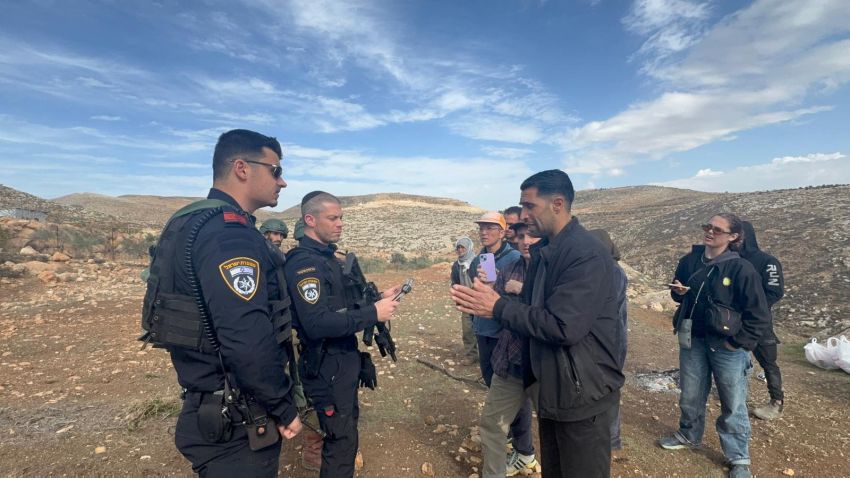
I was one of two volunteers from the human rights organisation International Solidarity Movement (ISM) arrested in the Palestinian occupied territories in January this year. The charge: disrupting the Israeli military and police from stealing Palestinian land from the Abu Na’eem family on the rural outskirts of the village al-Mughayyir, about 27 kilometres north-east of Ramallah.
Handcuffed, I was forced to sit in the back of a military truck, surrounded by soldiers pointing rifles at me. Staring out the back window I watched the Israeli flag unfurl against the Bedouin encampment as the village vanished from view.
I was suddenly alone and powerless in an undemocratic, rogue state.
Well, not entirely powerless, because Western foreign nationals — especially white people with United States passports — have more rights than Palestinians. This has been noted by many pro-Palestinian activists, including the great writer and critic James Baldwin. This doesn’t mean, however, that foreign nationals are impervious to Israeli cruelty and violence.
My treatment by Israeli authorities, while terrifying, was nothing compared to how Palestinians are systematically arrested and tortured on a daily basis. I was privy to these stories in my limited time in Palestine, and I will forever be haunted by them.
Nevertheless, I hope my story demonstrates the absurdity and lengths to which the world’s “most moral” military and the “only democracy in the Middle East” will assert itself against non-violent resistance.
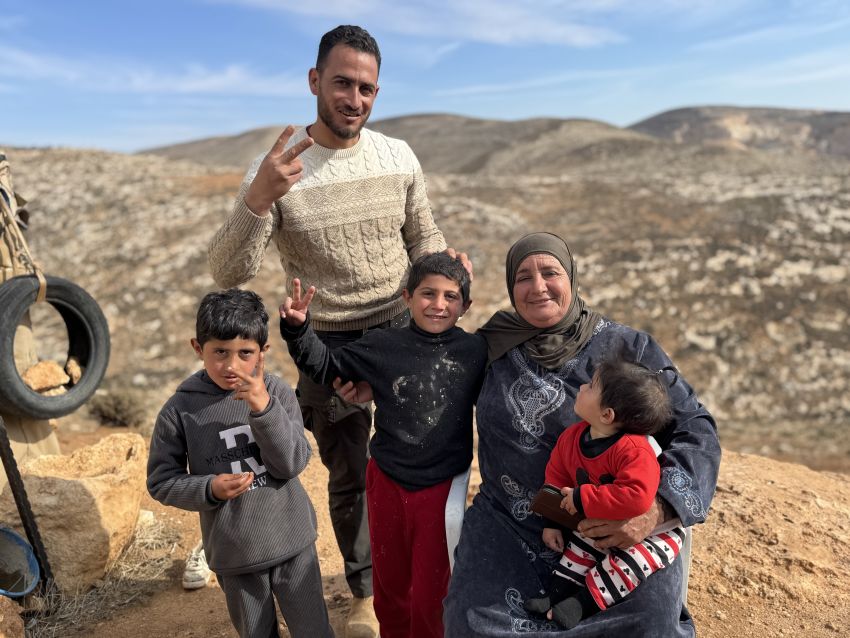
Settlements
Each morning, stepping out of my tent on the village edge, I saw a growing number of illegal settlements in different stages of development. Some are fully fledged establishments — physically and legally buttressed by walls and bigoted laws. Others, in their initial stage, resemble small “outposts” with a single generic building perched atop a hill.
Settlements or outposts are not possible without government approval and resources, such as military support, checkpoints and roadblocks, to control and prevent Palestinian movement, and roads that can only be used by settlers.
On my third morning with the Abu Na’eem family, my attention was drawn to an illegal settler grazing his sheep, binoculars in hand, gazing down on the Bedouin encampment.
If you are Palestinian, you know it would be only a matter of time before authorities receive their marching orders and descend upon the Bedouin family to declare that their land is now a “military zone”. This well-known “legal” tactic is abused frequently to dispossess and displace Palestinians from land that is historically theirs, and to which they have been granted a building permit.
This instance would be no different.
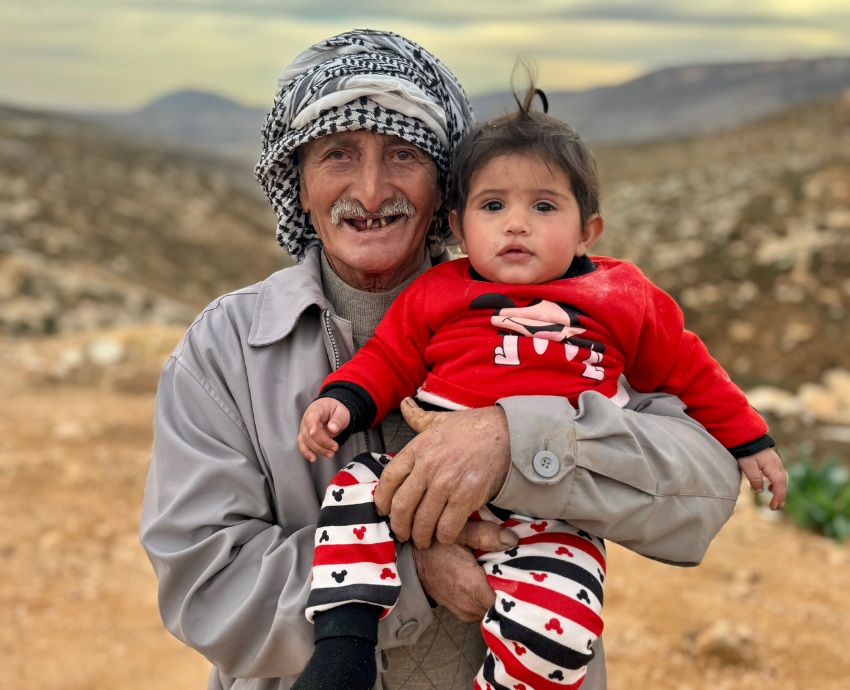
Apartheid
I was raised with an ahistorical understanding of Israel. I am Jewish and grew up celebrating Hanukkah. In my teens when my mother remarried, we hosted extended family Passover Seders, and I attempted but failed to fully fast each Yom Kippur. On the holy days, we recognised the persecution of the Jewish people, and on Rosh Hashanah repeated the mantra of “See you next year in Jerusalem”, as if the state of Israel was a given and devoid of contradictions and its indigenous people.
Only following a two-year volunteer Peace Corps experience in South Africa (2003–05), where I learned about the nuances and legacies of Apartheid and colonialism, did I dare challenge my family with any critique. When I questioned the violence inherent to the creation and maintenance of the Israeli state, I was blasted with terse retorts meant to shut down all conversation.
My South African counterparts, when questioned about the conflict between Israel and the Palestinian Occupied Territories, would unremarkably refer to it as apartheid. They should know. From 1948–94, the South African government, led by the racist Nationalist Party (NP), strengthened white minority rule through codifying apartheid policies.
The NP merely built on the colonial displacement and dispossession of black South Africans, most infamously brought to fruition through the 1913 Native Lands Act, which served to sever sociocultural ties amongst Bantu peoples by forcing them onto separate “homelands”.
No apartheid, however, is the same, as white South African colonial conquest was less interested in ethnic cleansing than maintaining the reproduction of cheap reservoirs of black labour for the agricultural and mining sectors. The opposite can be said of today’s Israeli policy.
In this Orwellian moment, where human rights violations, war crimes and body counts grow, it’s incumbent upon Jewish Americans to loudly voice their unequivocal dissent.
Arrest
Back at the encampment, the process of ethnic cleansing unfolded: First, four Israeli occupation forces soldiers arrived. They walked slowly, deliberately down the hill as the settler and his sheep looked down from above. They were met by a small group of Palestinians standing beside a large tent; some who lived in the encampment, and other family and friends who were staying in a nearby village.
Six ISM volunteers joined and stood side by side in solidarity with the family, taking videos and photographing the conversation.
When the police arrived, the situation became increasingly tense. Palestinians have a great deal of experience in these matters, and the ISM volunteers, including myself, followed their lead.
The police truck’s arrival kicked up dust in the air. Two officers stepped out, one an American, the other — based on his accent — may have been Russian.
I was told that, as an international guest, I had no right to be there (not true). They stated that the area had recently been designated a military zone. We replied that this surely wasn’t possible as the family had a permit to live there, and asked to see legal documentation.
An IDF soldier delightedly showed me an image on his phone of a map, devoid of reference points or place names, but with something written and signed in Hebrew. This apparently qualified as legal proof.
One of the Palestinians spoke up for the family, exclaiming that the permit was held by the family’s lawyer.
This man is a local school teacher whose house had been occupied by Israeli forces only a couple of months earlier, when police needed a high vantage point to surveil the village and raid homes in search of kids who had thrown rocks at cars on a nearby road. The road had recently been deemed for use by settlers only.
Knowing the IDF’s propensity for kidnappings, the following days school children hid in their homes while teachers taught online using their cell phones. Three days later, the school teacher and his family moved back into their home. The family found that one of the school children’s notebooks had been sketched in with an Israeli flag.
I had no intention of getting arrested that day, but I had resigned myself to this fate. If Palestinians can find the courage to fight back, despite knowing the repressive and violent repercussions, then going to jail on a trumped-up charge was the least I could do.
When the police told us we had to leave, we asked what would happen if we didn’t. They replied that we’d be detained and brought to the station for questioning. I asked what would happen if we refused to be detained, and they said we’d be arrested.
We looked at our Palestinian hosts as they pleaded to the police to leave us alone, saying they did not want us (ISM volunteers) to leave, as we were their guests. I told the police I had no intention of going anywhere, which is when they placed the handcuffs on.
At the police station I was frisked for the third time and they shackled my ankles — a demented demonstration of power and an exercise in pettiness meant to embarrass or scare me.
The hallways were narrow and the officers had automatic rifles strapped to their bodies, which almost touched as they passed each other. Some officers greeted me with smiles, as if they had played this game before. Another, an American, greeted me and the other Jewish American ISM volunteer with an attitude informed by a puerile need to be respected and amped to exert physical power.
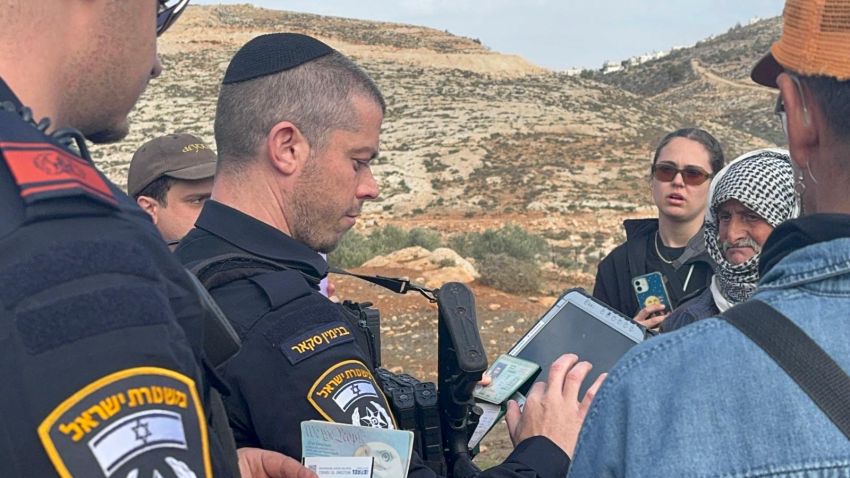
Abuse, coercion
Bending over to remove our shoelaces with our handcuffs still on, the American officer shouted and pushed my activist friend. My comrade asked him to stop and the officer denied he was doing anything. This charade continued until my comrade laughed, and then the gloves came off.
The American officer said “you think you’re so tough, let’s see how tough you really are” and “this ain’t Kansas anymore”. He grabbed the volunteer by the handcuffs and pulled him into a room next door. We could hear shouting and thudding, as if my comrade’s body was being banged up against the wall.
I was moved to another room, where I joined the two other detained volunteers. We exchanged glances, searching each other’s eyes for what to do next.
Moments later, chaos ensued, as the volunteer who had been thrown against the wall was pushed into our room. He was in tears, pleading for medical attention because his wrist had been broken. He asked to have his cuffs removed, and the American officer pushed down on his wrist to cause more pain while slowly removing them.
We were denied a phone call to our lawyer. They offered to release us provided we sign a document written in Hebrew. I refused, and they cuffed my hands behind my back and tossed me in a jail cell.
I asked for a bucket to relieve myself and they let me use the bathroom — my hands now cuffed in front. The officer stood watch. When I was done, they said they would release me if I signed a document. I thought it would be written in English. It wasn’t.
They allowed me to call a lawyer, but only if they dialled the number using their phone. No privacy. I watched them enter the phone number incorrectly, twice. Without legal representation we were coerced into signing the document, despite not being able to read it.
By signing, I was required to leave the West Bank for seven days. It also expedited my comrade’s medical attention.
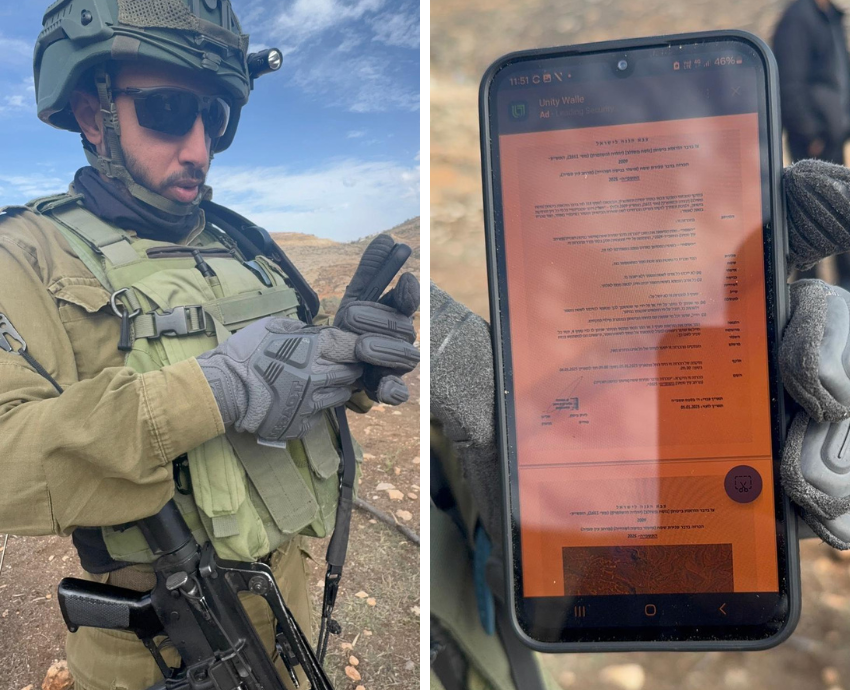
Genocide
Fortunately, one of the volunteers back at the village contacted our lawyer and charges will be pressed against the violent police officer. Whether or not these will amount to anything remains to be seen. If a Palestinian were detained and beaten, there would be zero recourse. It would just be another case whereby an occupying force is immune to international law.
I returned to the village to get my belongings. Some Palestinians jokingly told me that I was now one of them, as I had been arrested. One quickly disagreed. He said, “Had you been Palestinian you would have been beaten and would still be there.”
The following morning, I left; another stark reminder that I had more freedom of movement as an American than they had as people who had lived side by side with Romans amongst the ancient olive groves.
I’m in contact with a number of Palestinians who I will proudly stand beside again. My fear is that they may not be there when I return. Only a couple of weeks ago, the Abu Na’eem family was attacked by Israeli settlers and IOF. Children were teargassed. Tents were torn.
While Gaza is under direct military siege and blockade, Palestinians in the West Bank are interned. The former is a fast moving genocide, the latter a slow moving one.
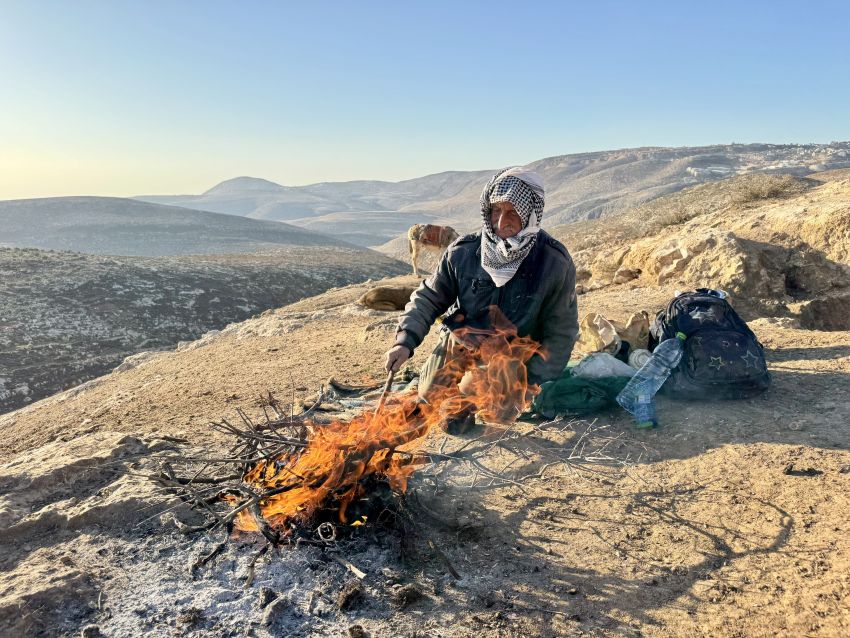
Video: Witnessing Israel's ethnic cleansing on the Palestinian West Bank
This video supplied by the author shows the aftermath of a “visit” to the village of al-Mughayyir, about 27 kilometres north-east of Ramallah, by soldiers of the Israeli Occupying Force. They rummaged through and damaged the Abu Na’eem family’s belongings and made threats that they would have to leave their home. The second part of the video is of an Israeli settler who has arrived in the village and is intimidating the family. This is a common occurrence. The illegal settlers who do this are generally young and arrive on motorbikes or quad bikes.